The UK is preparing to lose rights to share security and business data with the EU after Brexit is completed at the end of the year, a minister has admitted.
The flow of vital information will be cut off unless Brussels grants an “adequacy decision” – a process thrown into jeopardy by past legal judgements against Britain, critics fear.
The security minister, James Brokenshire, refused to reveal “what stage of the process” has been reached, with just six months until departure day in December.
Download the new Independent Premium app
Sharing the full story, not just the headlines
But, he admitted to a parliamentary inquiry: “We will take sensible steps to prepare for a situation where that decision may not be in place.”
Alternative measures “might need to be pursued”, Mr Brokenshire said – prompting a demand to reveal the details of how the UK would be “protected”.
He insisted the government remained “positive” that agreement would be reached, saying: “It is self-evidently in the interests of both side that the adequacy decision is in place by the end of the year.”
But Dawn Primarolo, a Labour peer, pointed out that the EU had already declared the UK’s data-gathering methods “unlawful”, while the Home Office had breached rules on copying EU data.
“What stage of the European Union process has the UK reached and what does the government plan to do if adequacy is not awarded?”, she asked – demanding written evidence.
The focus in fears over data-sharing has been on the UK being at greater risk from terrorism and organised crime if it fails to strike a security deal.
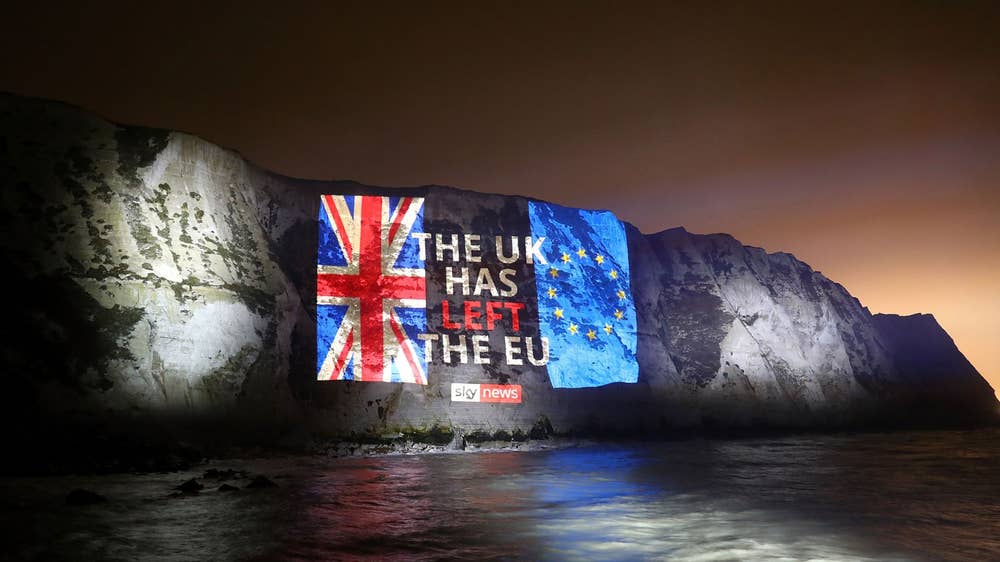
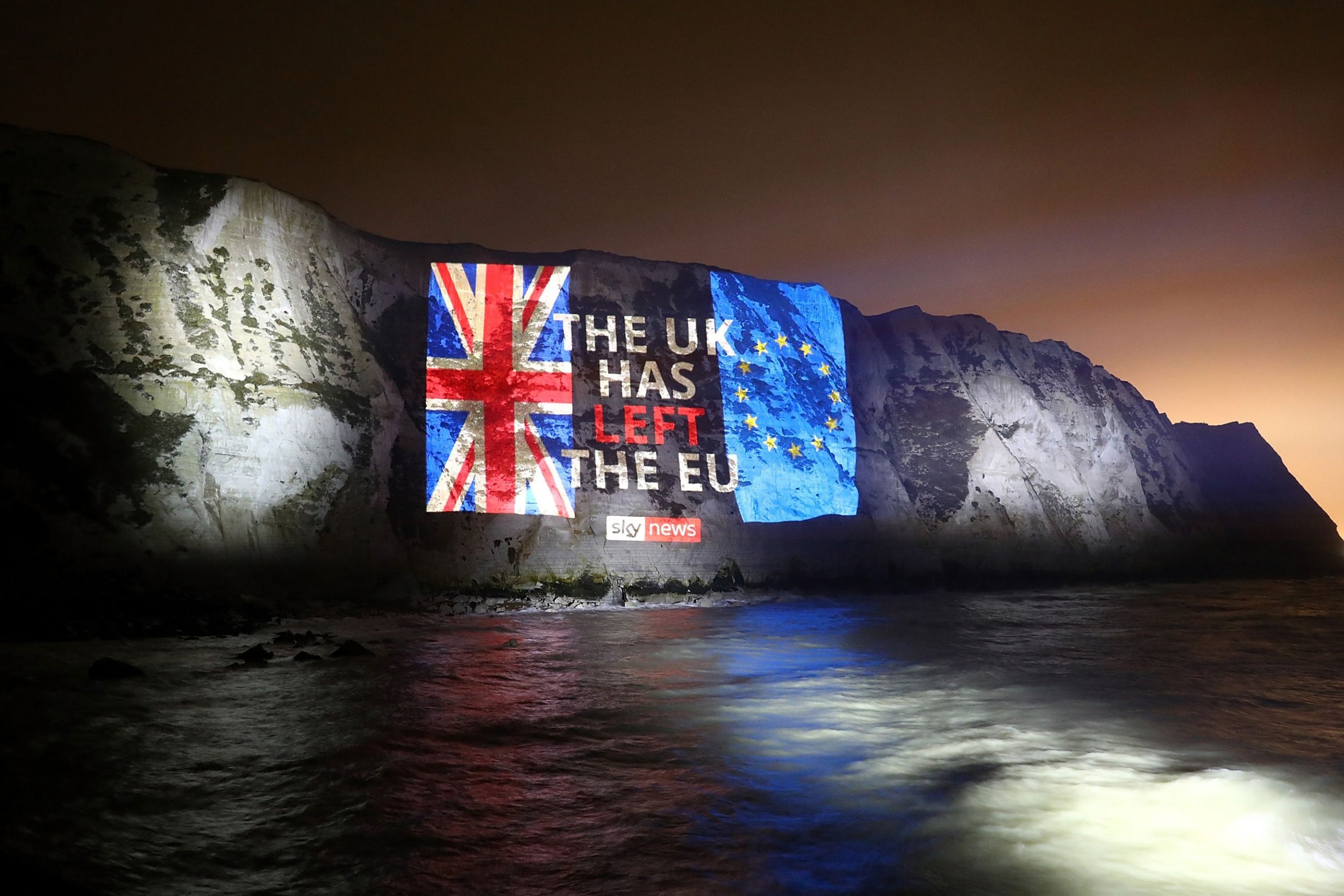
1/66
A message projected onto the White Cliffs of Dover
Sky News/AFP via Getty

2/66
Getty

3/66
Big Ben, shows the hands at eleven o’clock at night
AFP via Getty Images

4/66
Nigel Farage speaks to pro-Brexit supporters
PA

5/66
Pro-Brexit demonstrators celebrate on Parliament Square
REUTERS
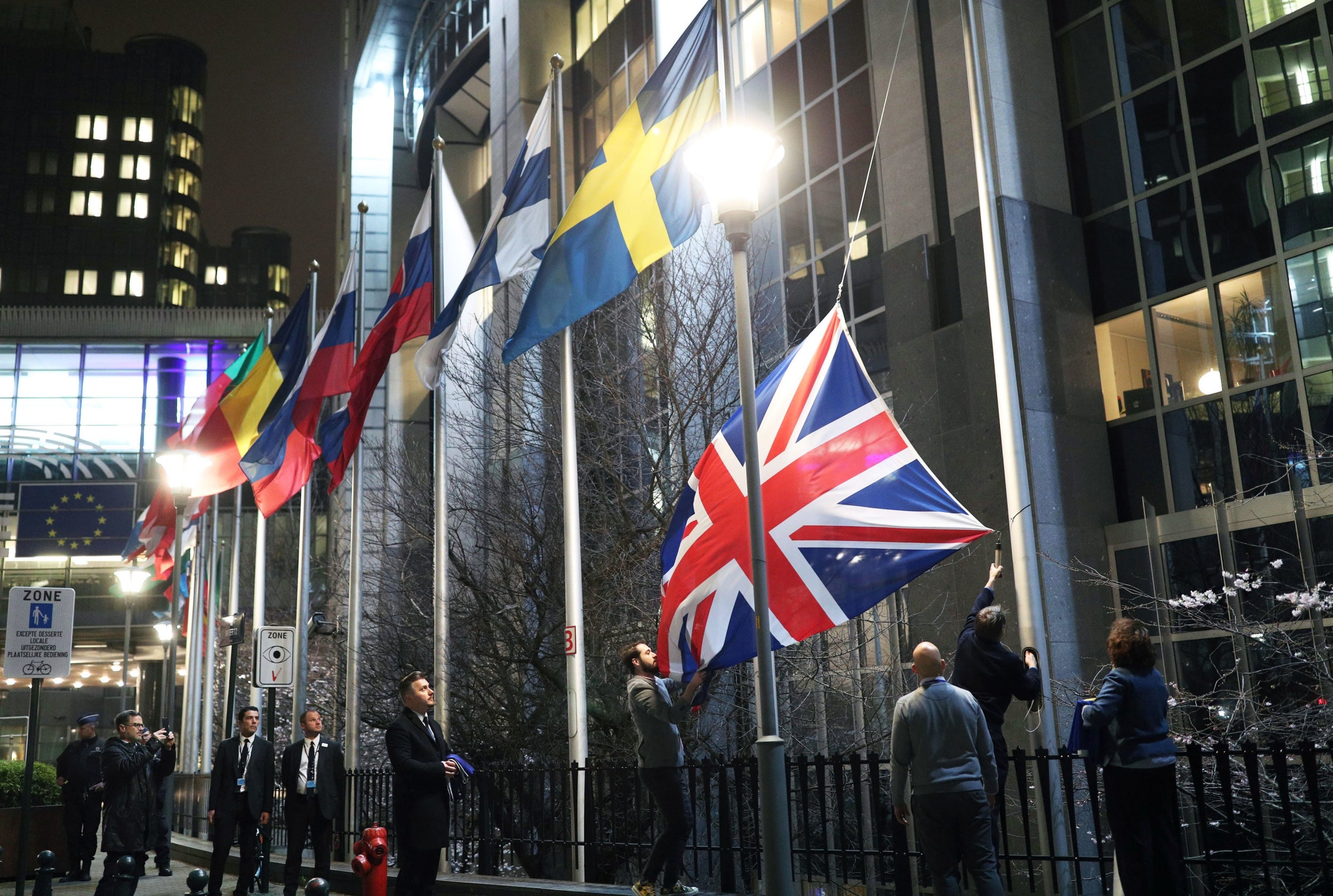
6/66
The Union flag is taken down outside the European Parliament in Brussels
PA

7/66
Pro-EU campaigners outside the Scottish Parliament, Edinburgh
PA

8/66
A pro-Brexit supporter jumps on an EU flag in Parliament Square
PA

9/66
EU Council staff removed the Union Jack-British flag from the European Council in Brussels, Belgium
EPA

10/66
A pro-Brexit supporter pours beer onto an EU flag
PA
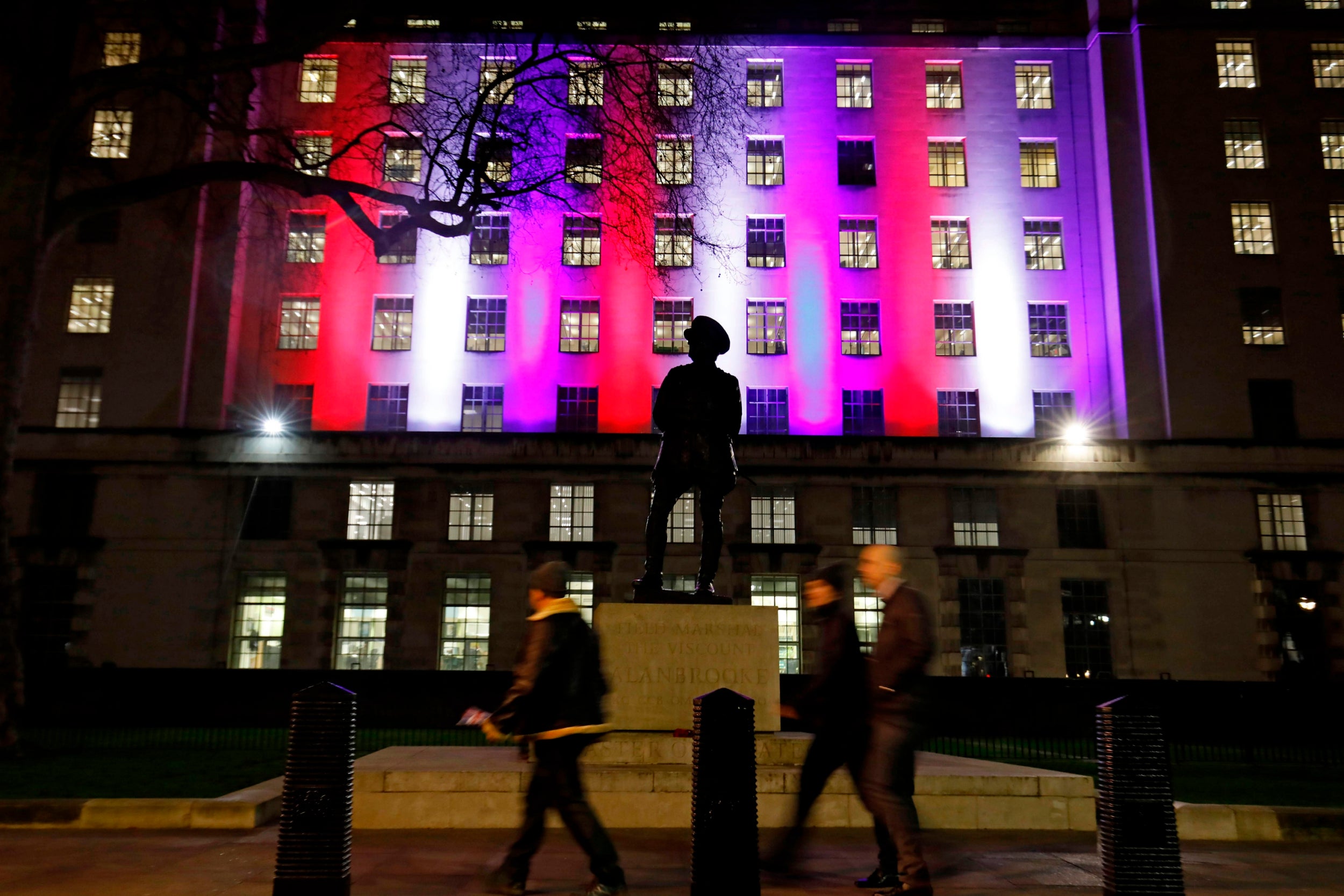
11/66
Pedestrians pass in front of the Ministry of Defence Building on Whitehall, illuminated by red, white and blue lights in central London
AFP via Getty Images

12/66
A Brexit supporter shouts during a rally in London
AP

13/66
Pro-EU campaigners outside the Scottish Parliament, Edinburgh
PA

14/66
Pro-EU campaigners take part in a ‘Missing EU Already’ rally outside the Scottish Parliament, Edinburgh
PA
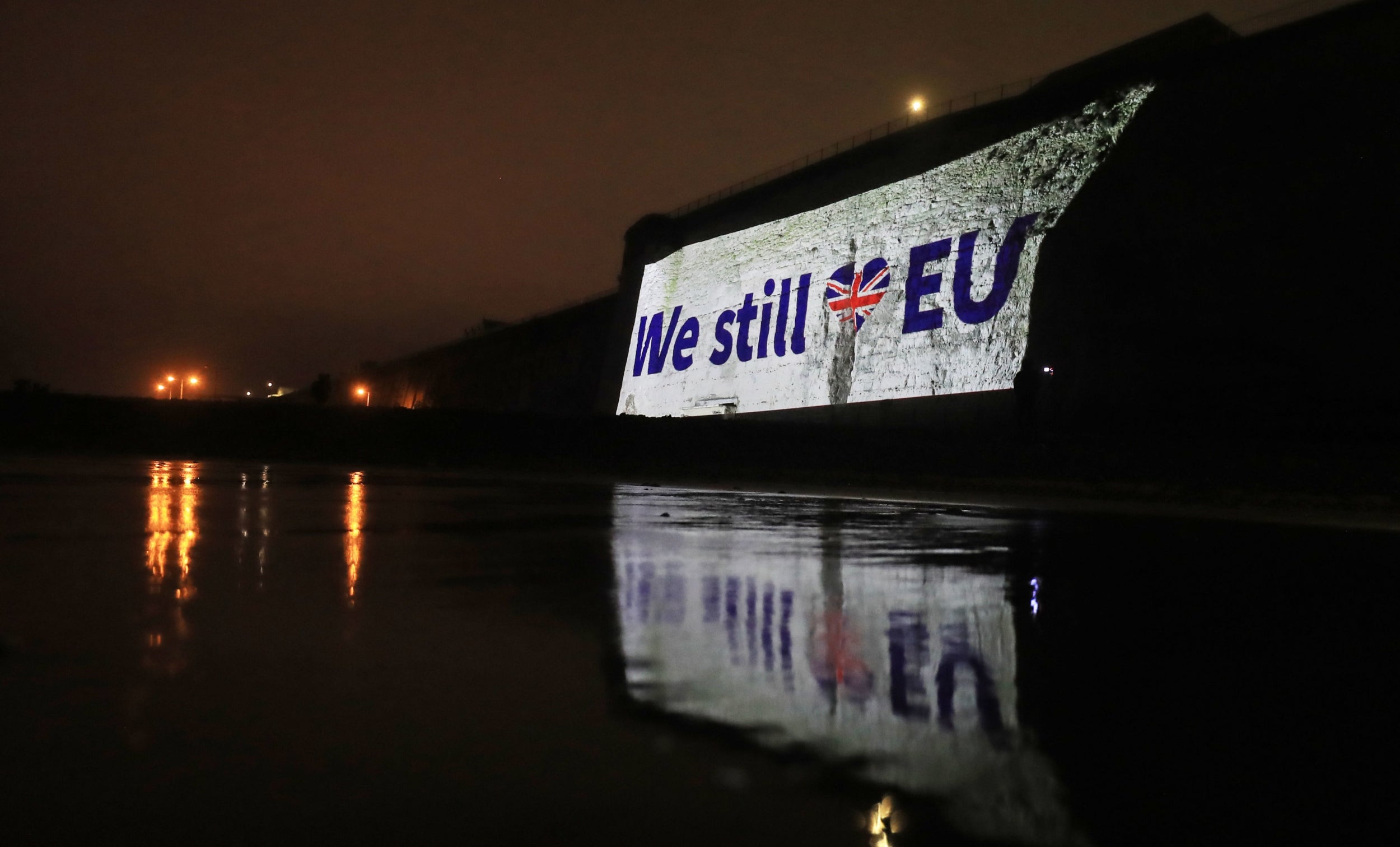
15/66
A large pro-EU banner is projected onto Ramsgate cliff in Kent
PA

16/66
Pro-EU supporters light candles in Smith Square in Westminster
PA

17/66
A man waves Union flags from a small car as he drives past Brexit supporters gathering in Parliament Square
AFP via Getty Images

18/66
The five-year old Elisa Saemann, left, and her seven-year old sister Katie hold a placard during a rally by anti-Brexit protesters outside the Scottish parliament in Edinburgh
AP

19/66
Pro Europe supporters gather on Brexit day near the British embassy in Berlin, Germany
EPA

20/66
Anti-Brexit protester hugs a man while holding a placard
REUTERS
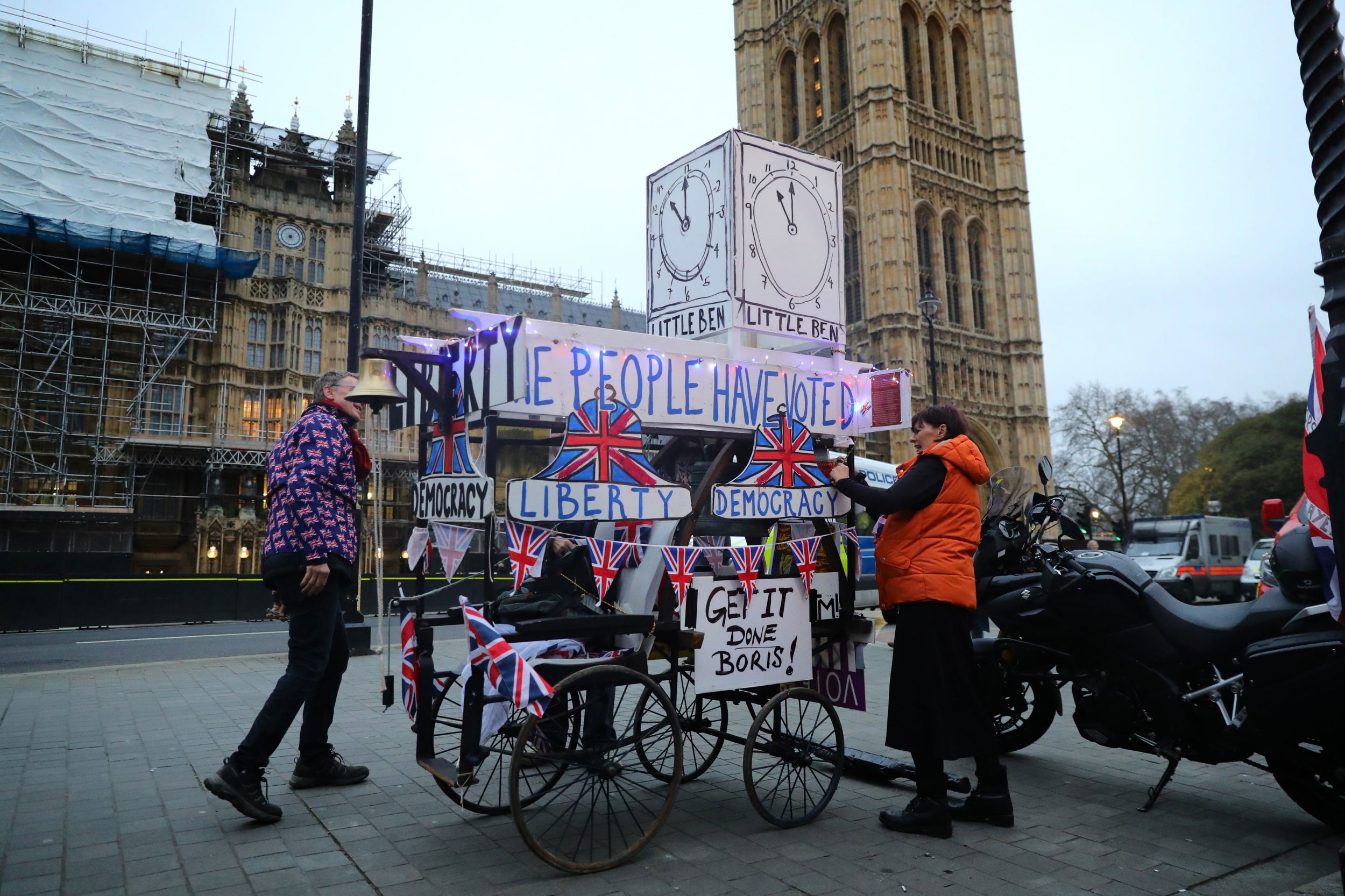
21/66
A decorated, old fashioned fire pump in Parliament Square
PA

22/66
Pro Brexit Elvis impersonator performs at Parliament Square
Getty Images

23/66
An anti-Brexiteers stands with his dog in Parliament Square
AFP via Getty Images
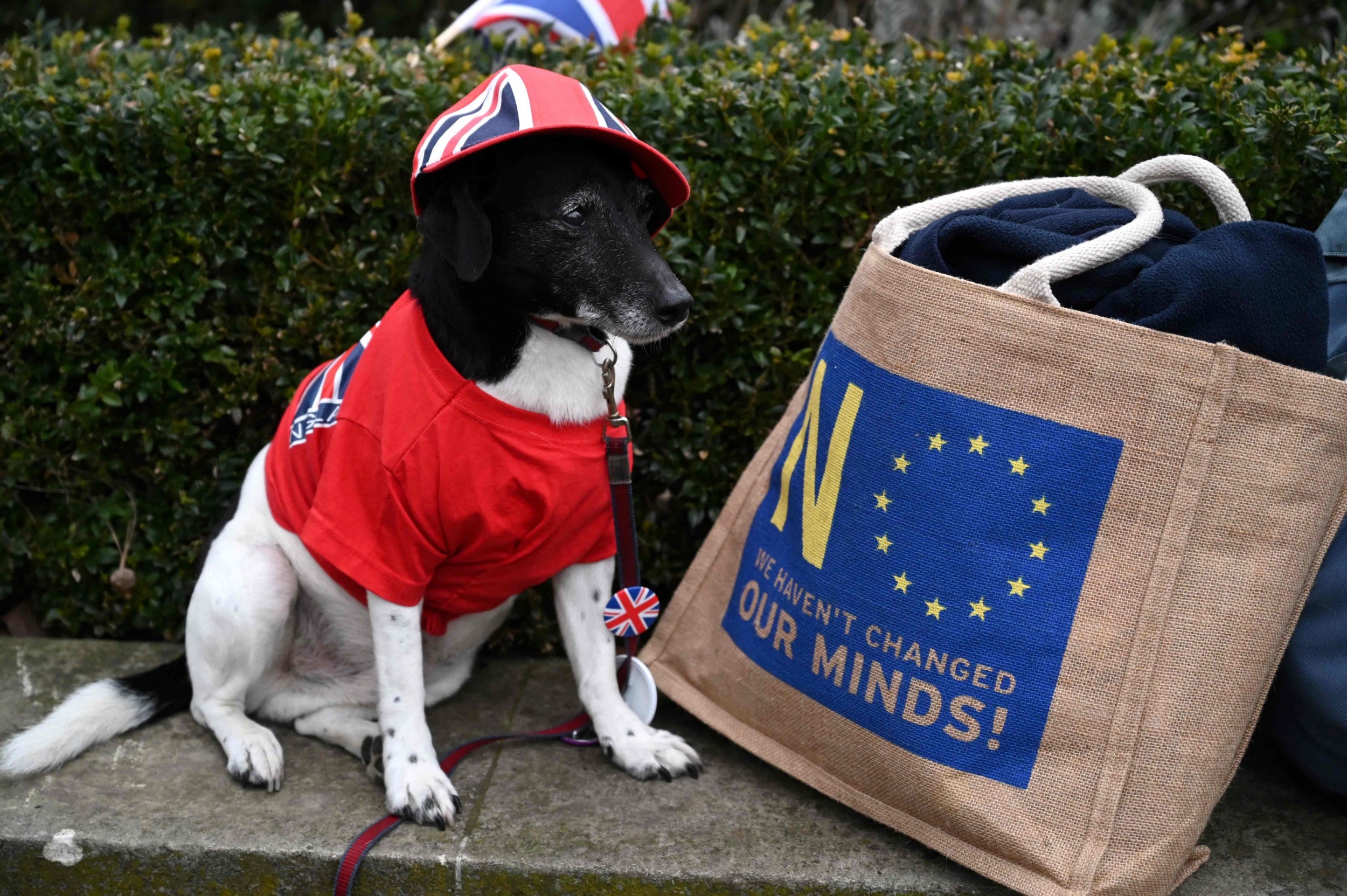
24/66
Paddy from Bournemouth wears Union colours as he sits next to an EU flag decorated bag in Parliament Square
AFP via Getty Images

25/66
A pro-EU activist plays a guitar decorated with the EU flag during a protest organised by civil rights group New Europeans outside Europe House, central London
AFP via Getty Images

26/66
People celebrate Britain leaving the EU
REUTERS

27/66
A Pro Brexit supporter has a Union Jack painted onto his face at Parliament Square
Getty Images
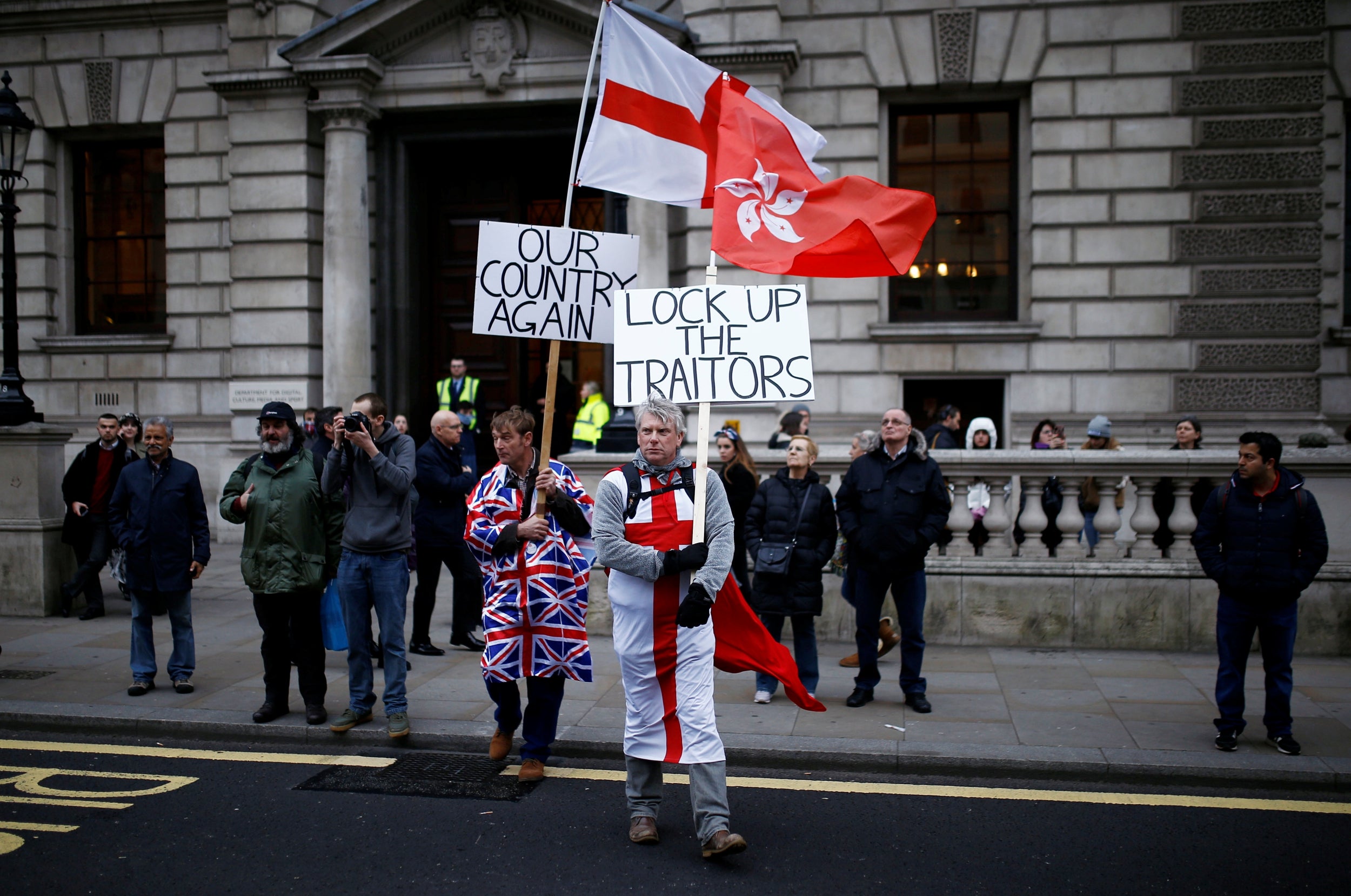
28/66
Men hold placards celebrating Britain leaving the EU
REUTERS

29/66
Pro Brexit supporters dance in the street draped with Union Jack flags at Parliament Square
Getty Images
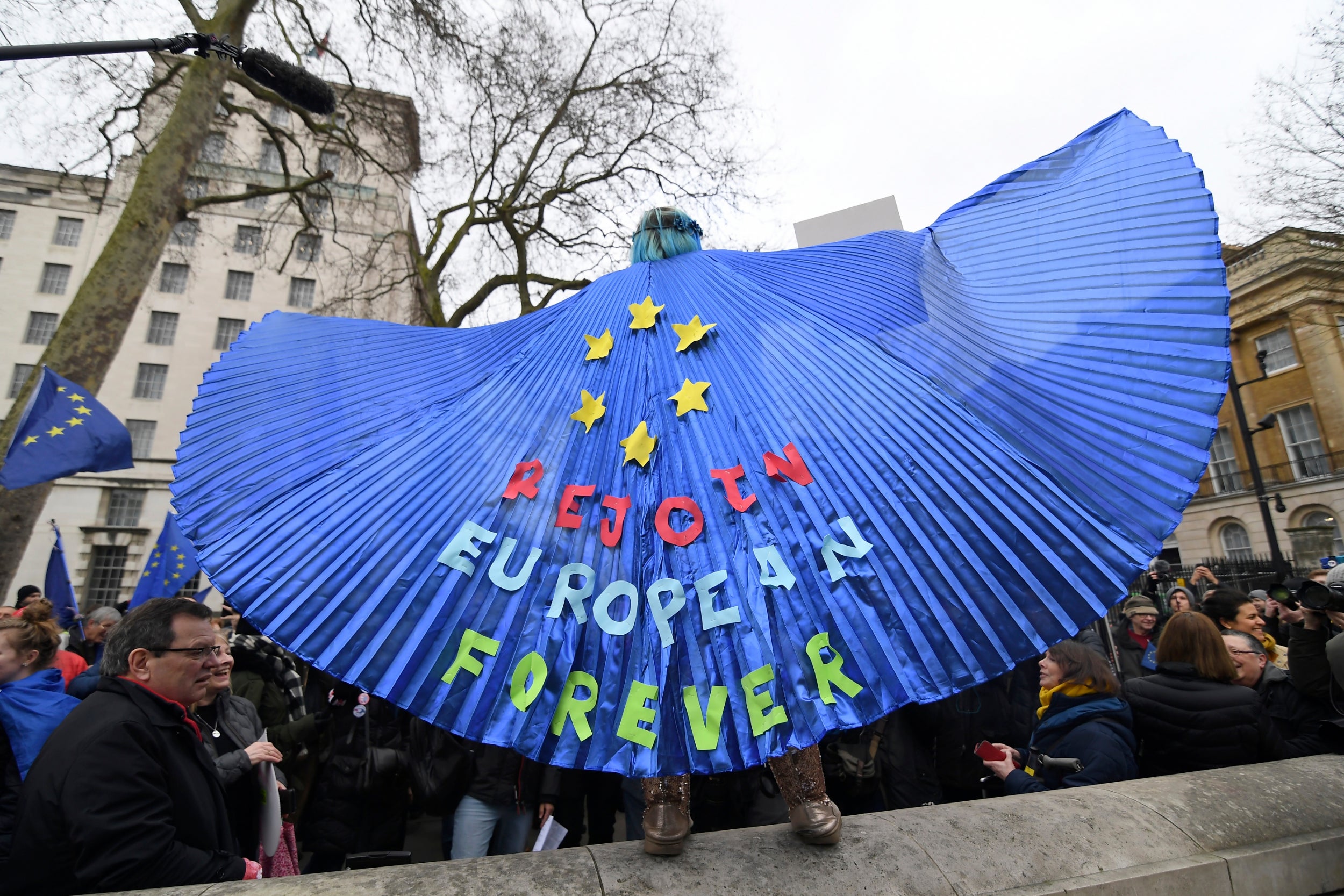
30/66
An anti-Brexit demonstrator spreads his wings during a gathering near Downing Street
AP

31/66
Pro EU supporters display a banner ‘ Here to Stay, Here to Fight, Migrants In, Tories Out’ from Westminster bridge
EPA

32/66
Pro-Brexit supporters burn European Union flags at Parliament Square
Getty
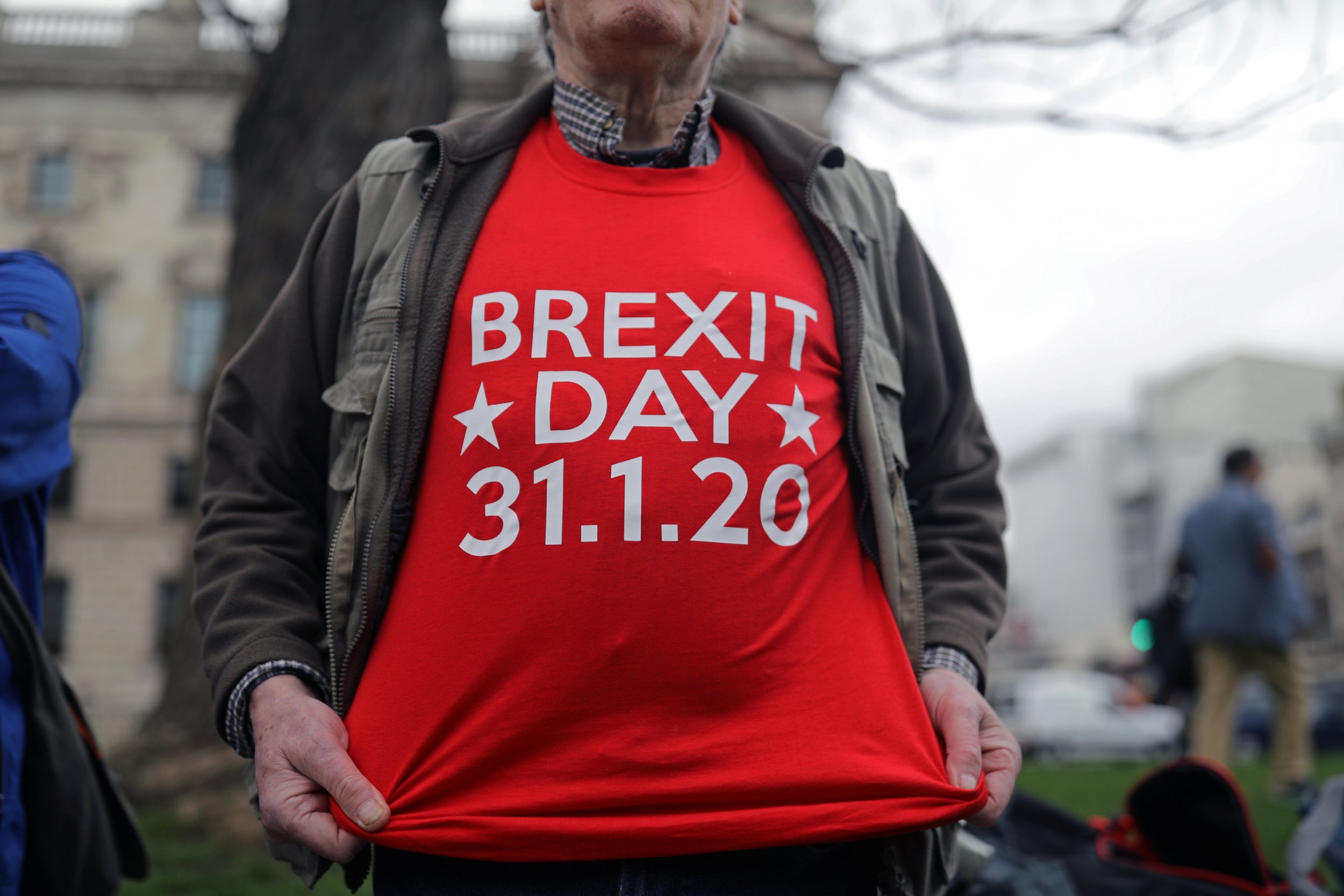
33/66
A man poses for a picture on Parliament Square in a ‘Brexit Day’ t-shirt
Reuters

34/66
People celebrate Britain leaving the EU
Reuters

35/66
AFP via Getty

36/66
A man wears a pro-Brexit t-shirt
Reuters
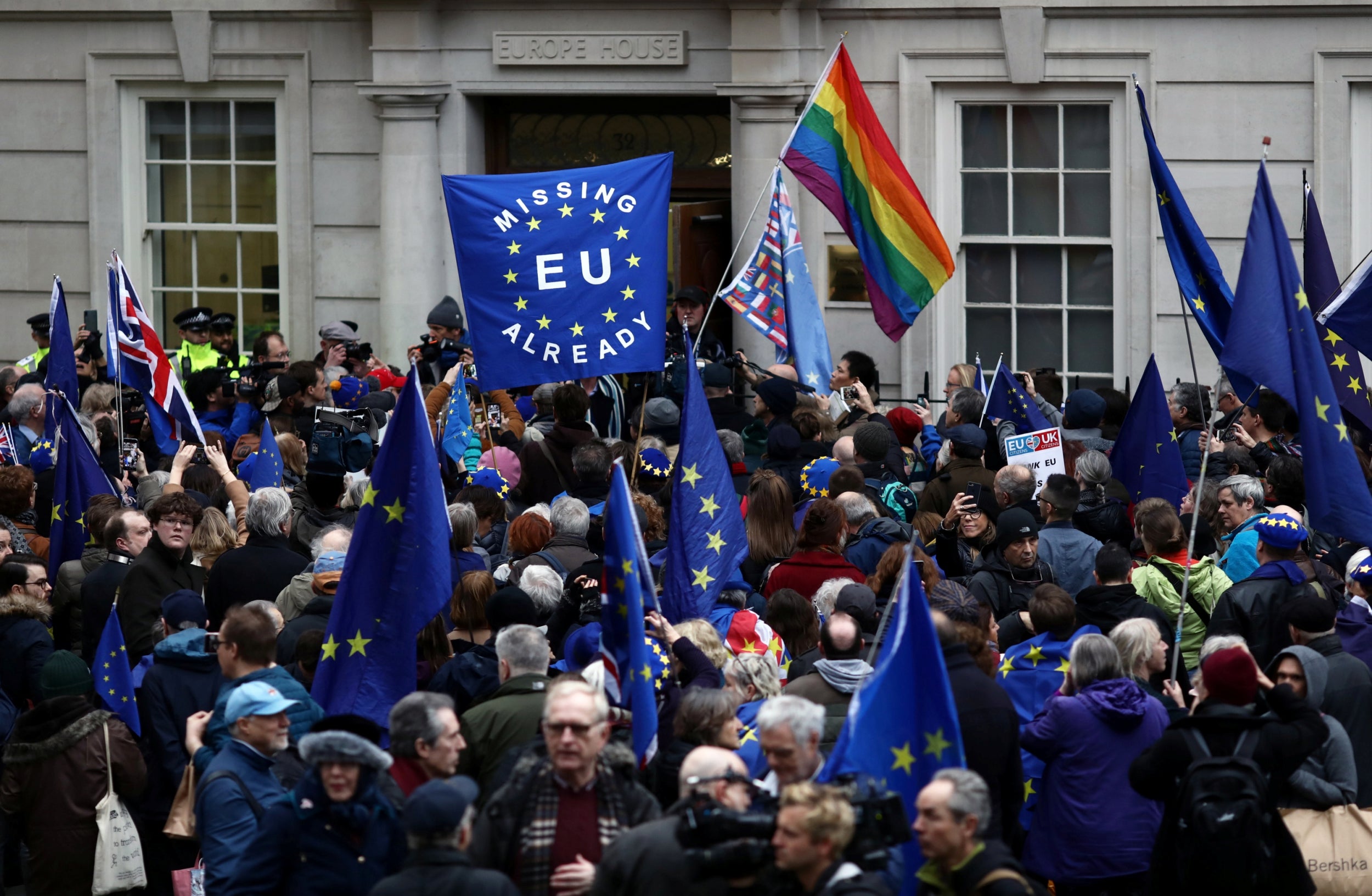
37/66
Anti-Brexit demonstrators visit Europe House to give flowers to the staff on Brexit day
Reuters

38/66
Pro Brexit supporter wears a novelty Union Jack top hat outside the Houses of Parliament
Getty Images

39/66
Customers Scott Jones and Laura Jones at the Sawmill Bar in South Elmsall, Yorkshire, where a Brexit party is being held throughout the day
PA
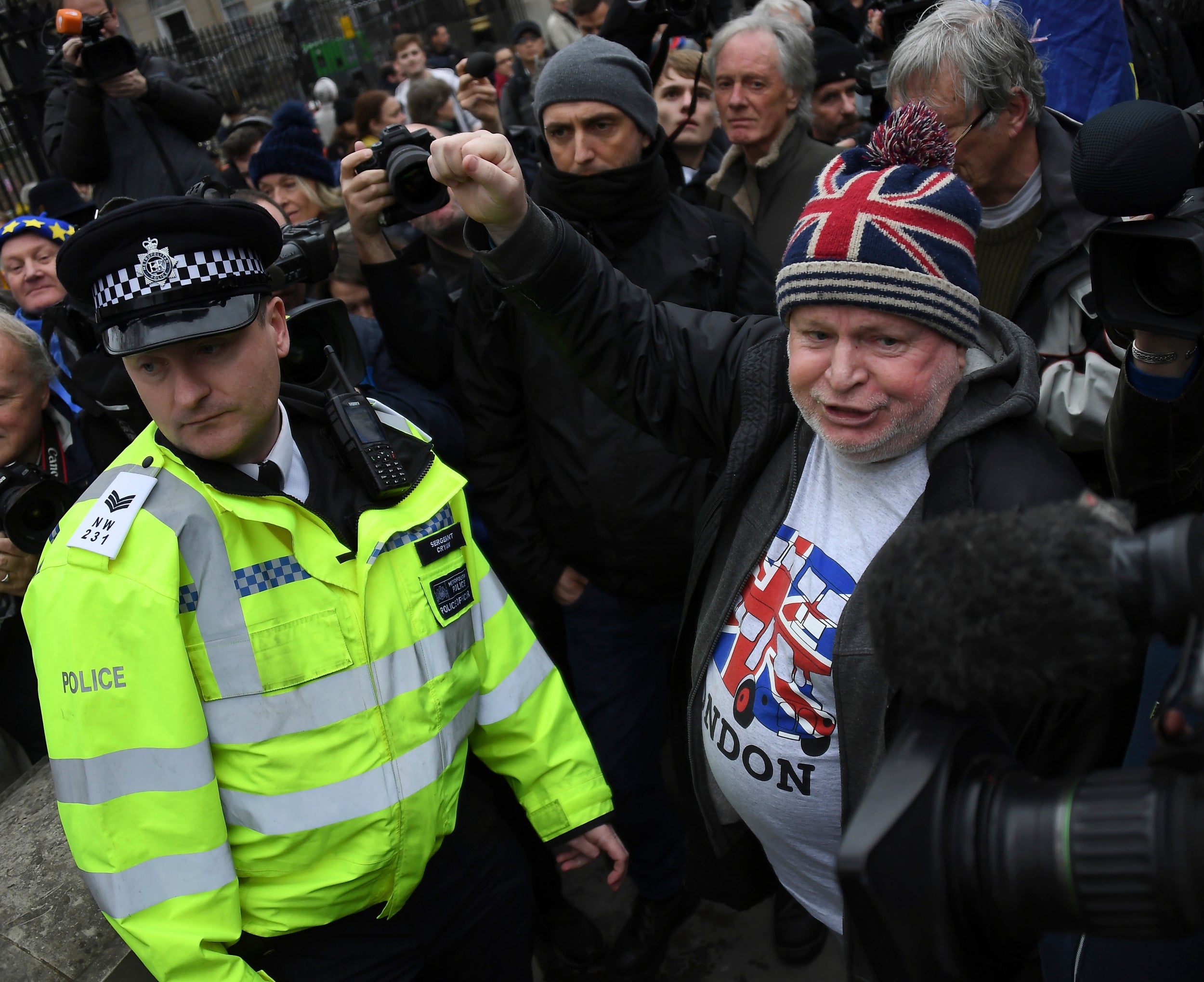
40/66
AP
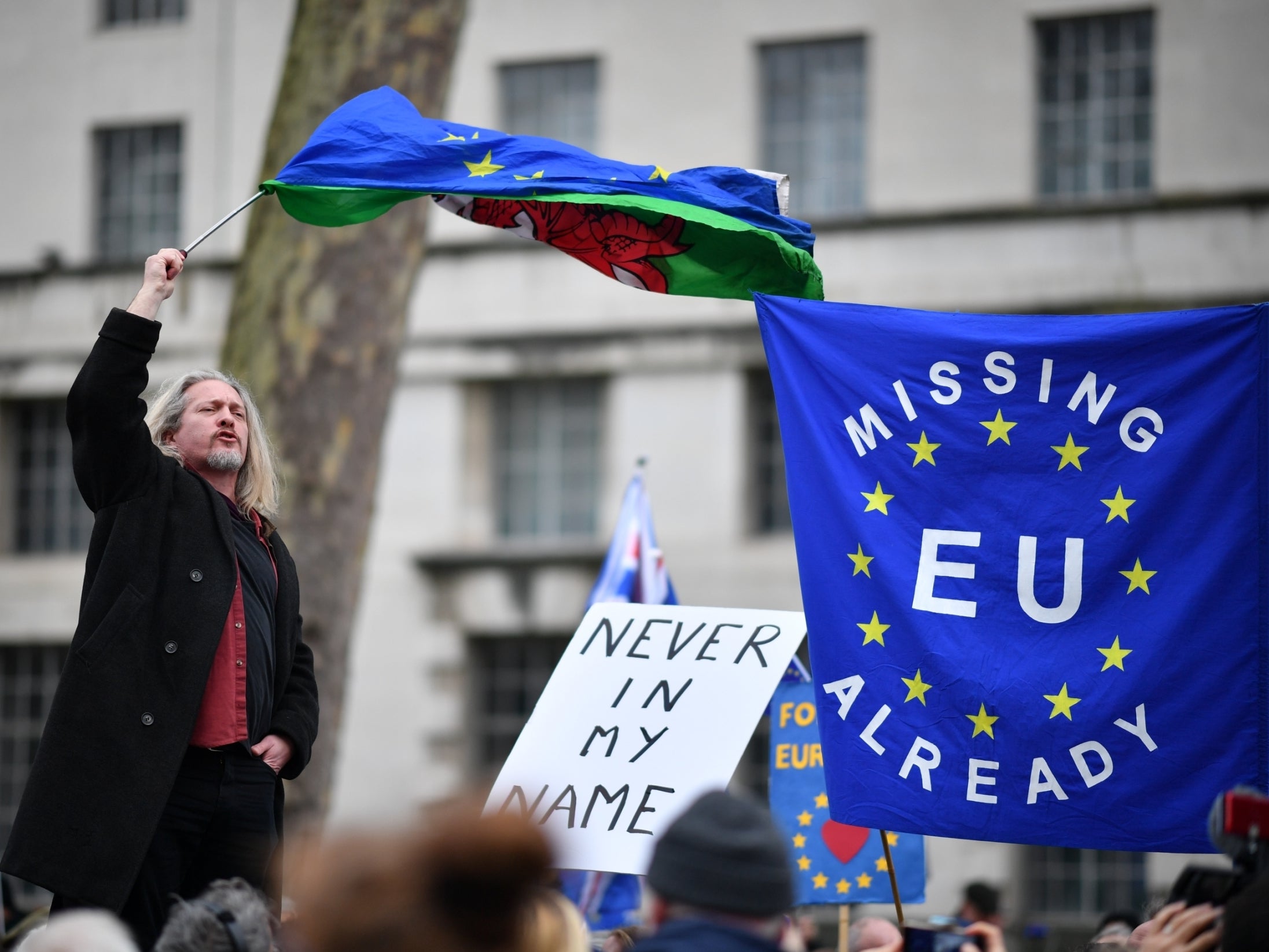
41/66
Getty

42/66
Getty Images
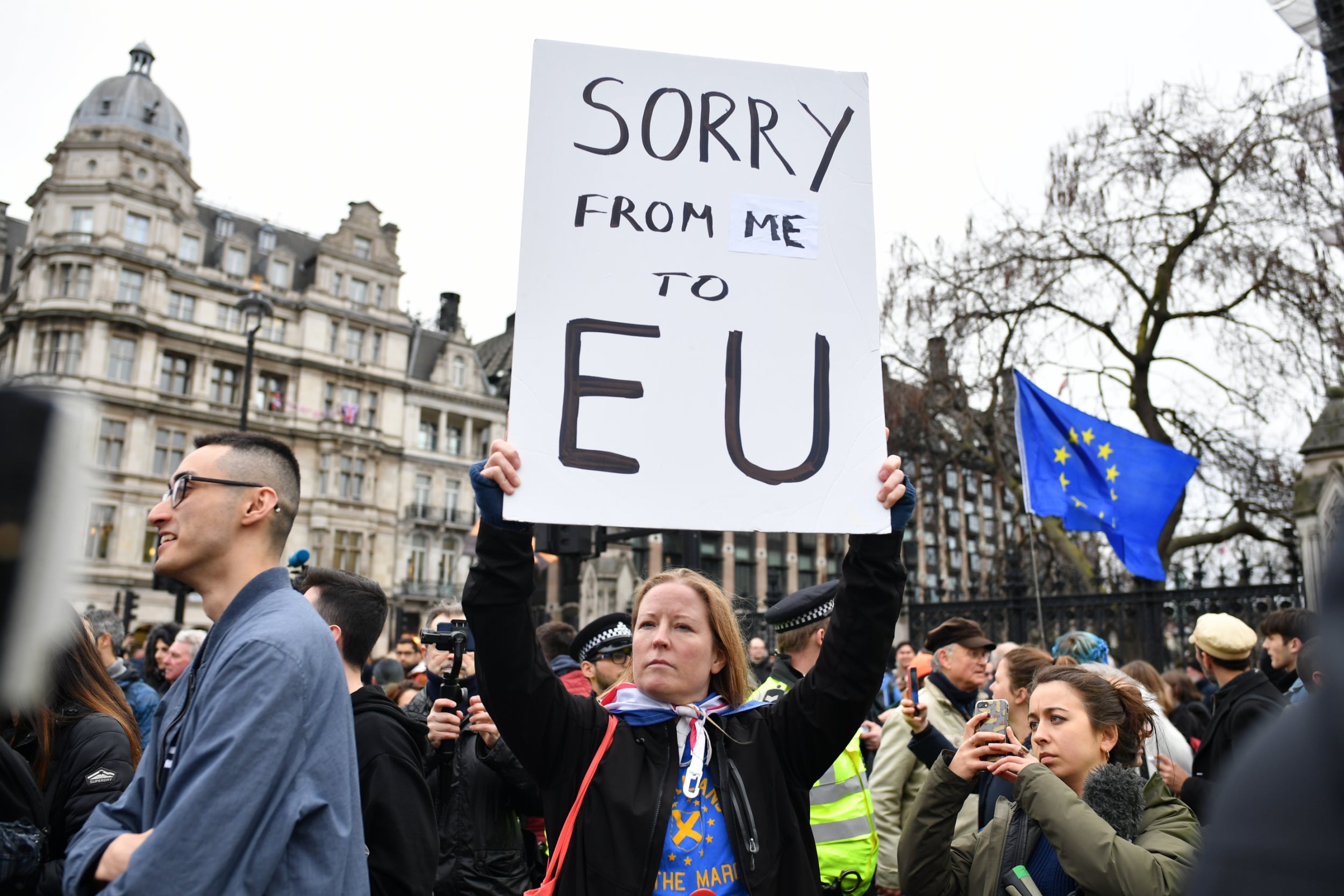
43/66
Pro-EU activists protest
Getty Images

44/66
A pro-Brexit demonstrator burns a European Union flag
AP
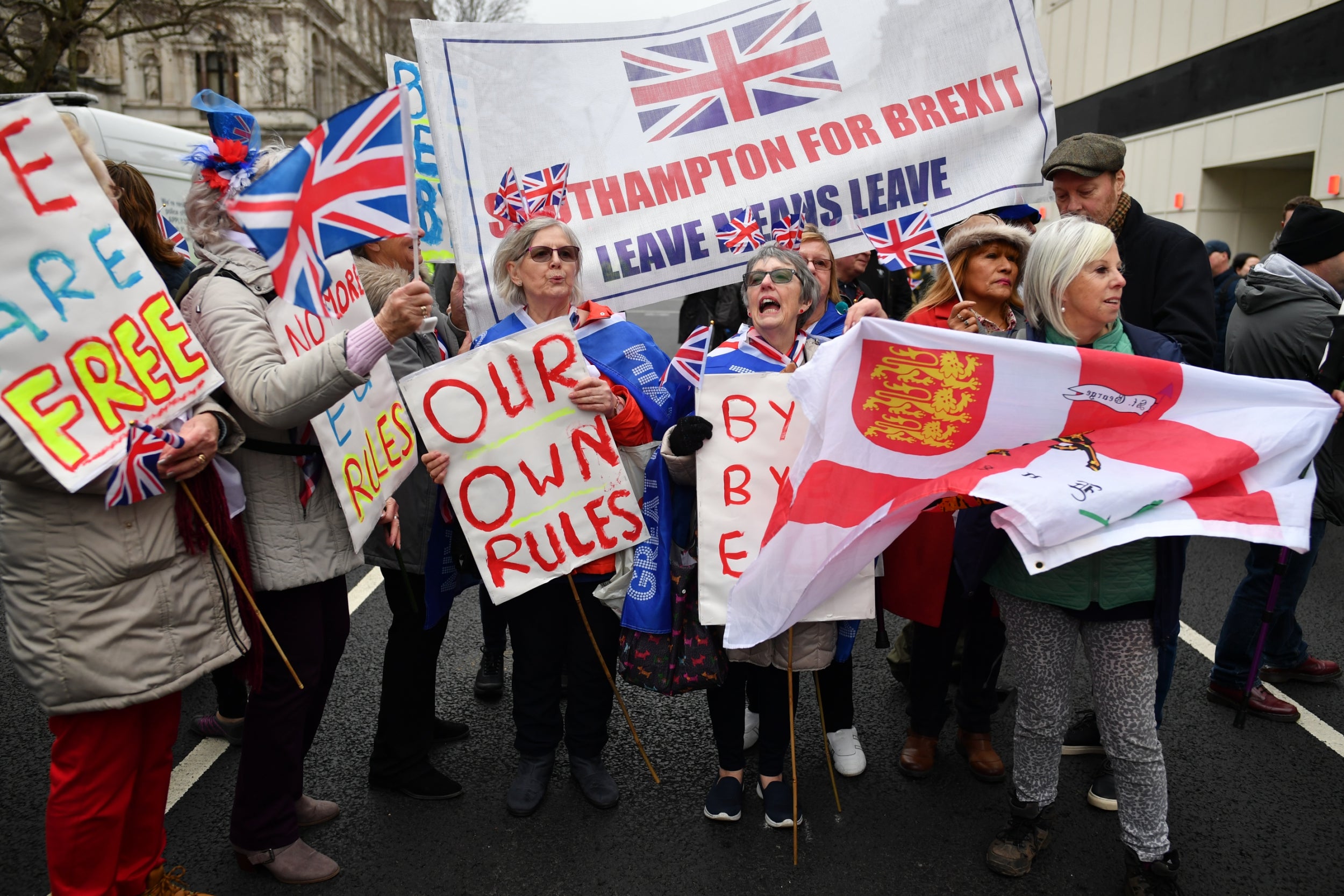
45/66
Pro Brexit supporters
Getty Images

46/66
Pro Brexit supporters
Getty Images

47/66
A Brexit supports holds a sign in Parliament Square
AP

48/66
A man carries an EU themed wreath
Reuters

49/66
Ann Widdecombe reacts with other members of the Brexit party as they leave en masse from the European Parliament
PA
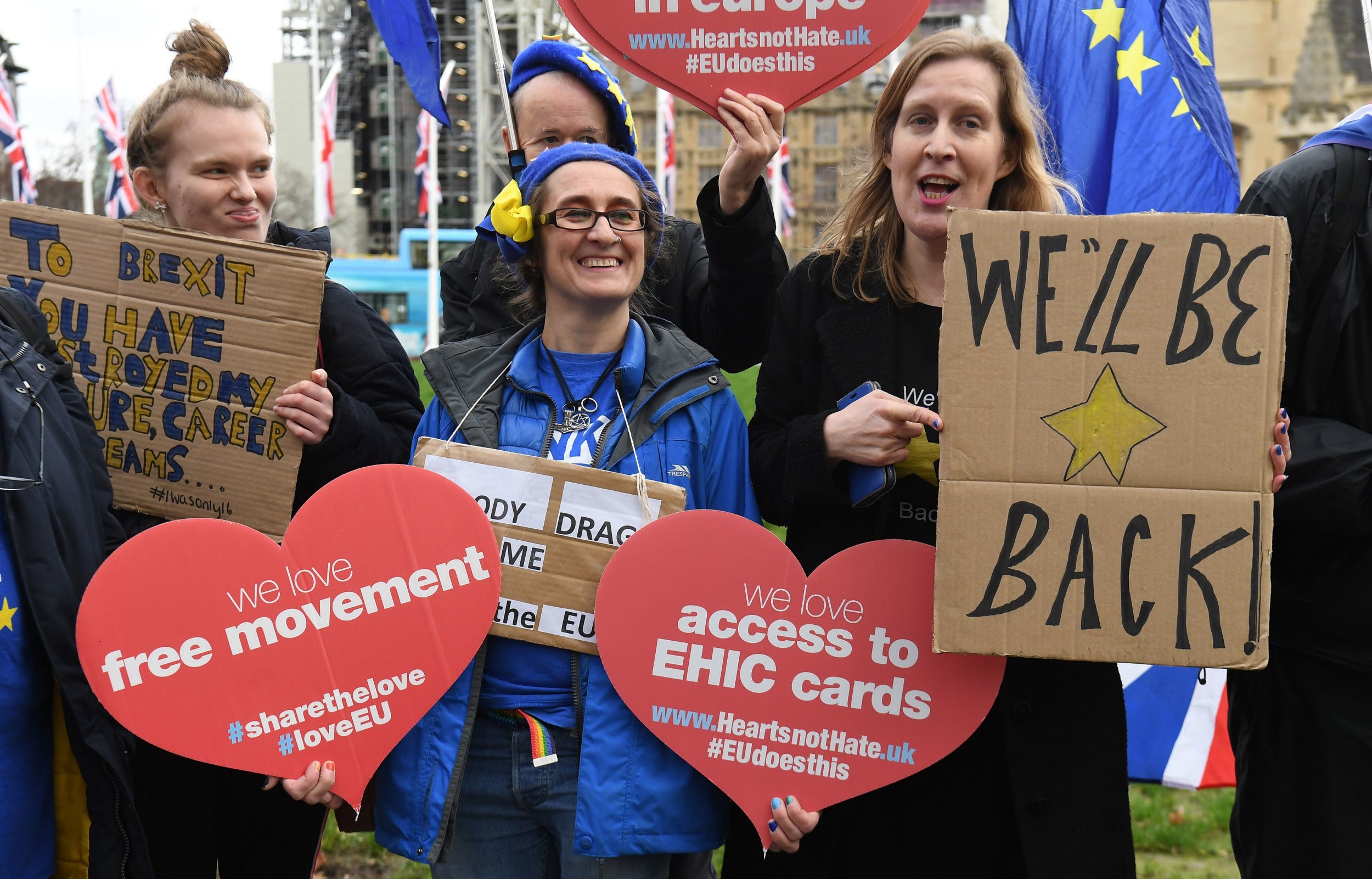
50/66
Anti-Brexit demonstrators in Parliament Square
PA

51/66
Pro EU supporters let off flares from Westminster Bridge
Getty

52/66
British MEPs Jonathan Bullock, holding the Union Jack flag and Jake Pugh leave the European Parliament, in Brussels on the Brexit day
AFP via Getty

53/66
Newspapers and other souvenirs at a store, near Parliament Square
Reuters

54/66
Brexit supporters hold signs in Parliament Square
AP
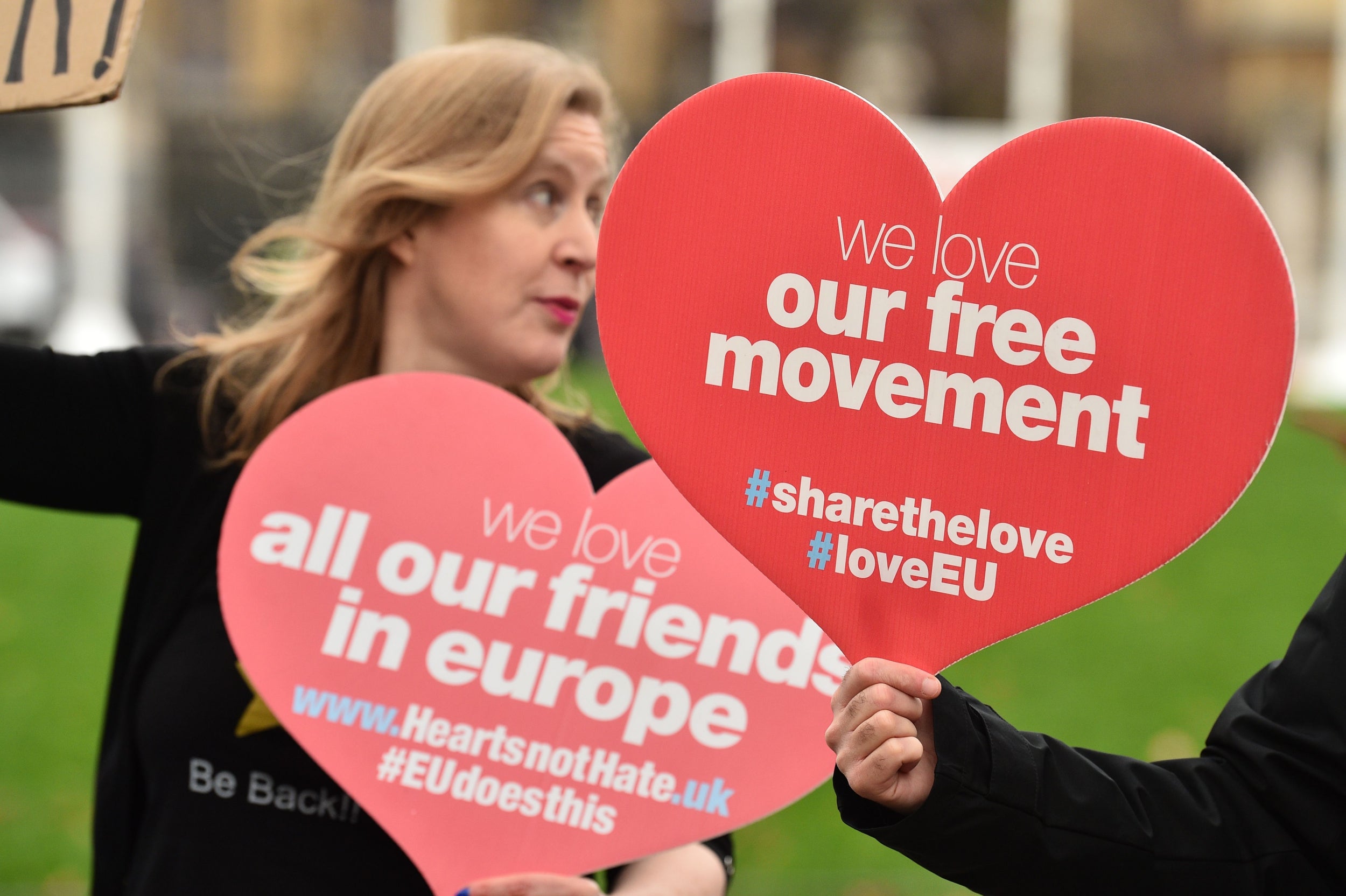
55/66
Pro-EU protesters hold placards in Parliament Square
AFP via Getty
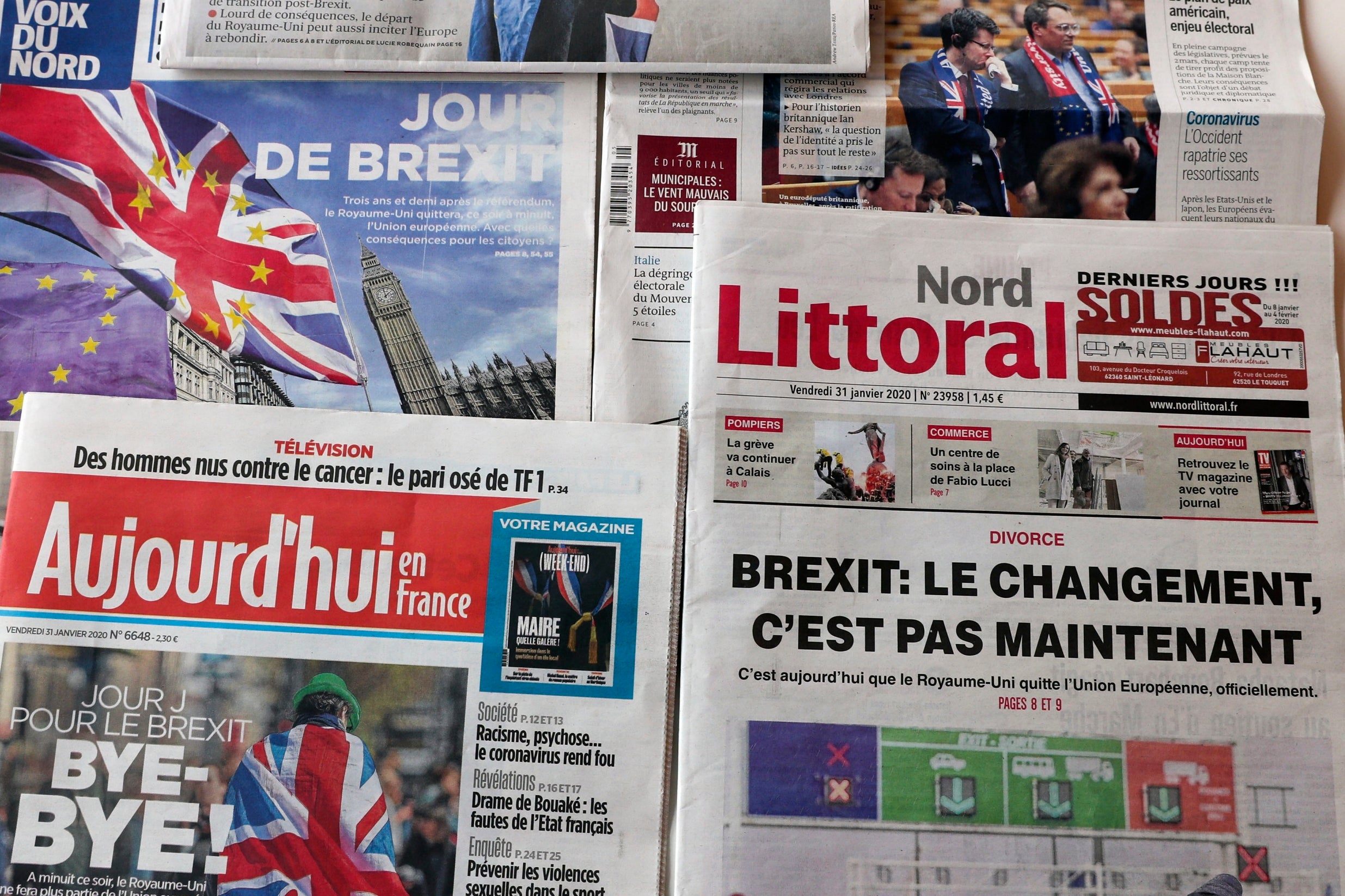
56/66
French newspapers
PA

57/66
Sinn Fein leader Mary Lou McDonald with a Border Communities Against Brexit poster before its unveiling in Carrickcarnon on the Irish border
PA

58/66
National growers organisation British Apples & Pears has renamed a British apple to EOS, the Greek goddess of dawn, to commemorate Brexit day
AP

59/66
Pro-EU protesters hold placards in Parliament Square
AFP via Getty
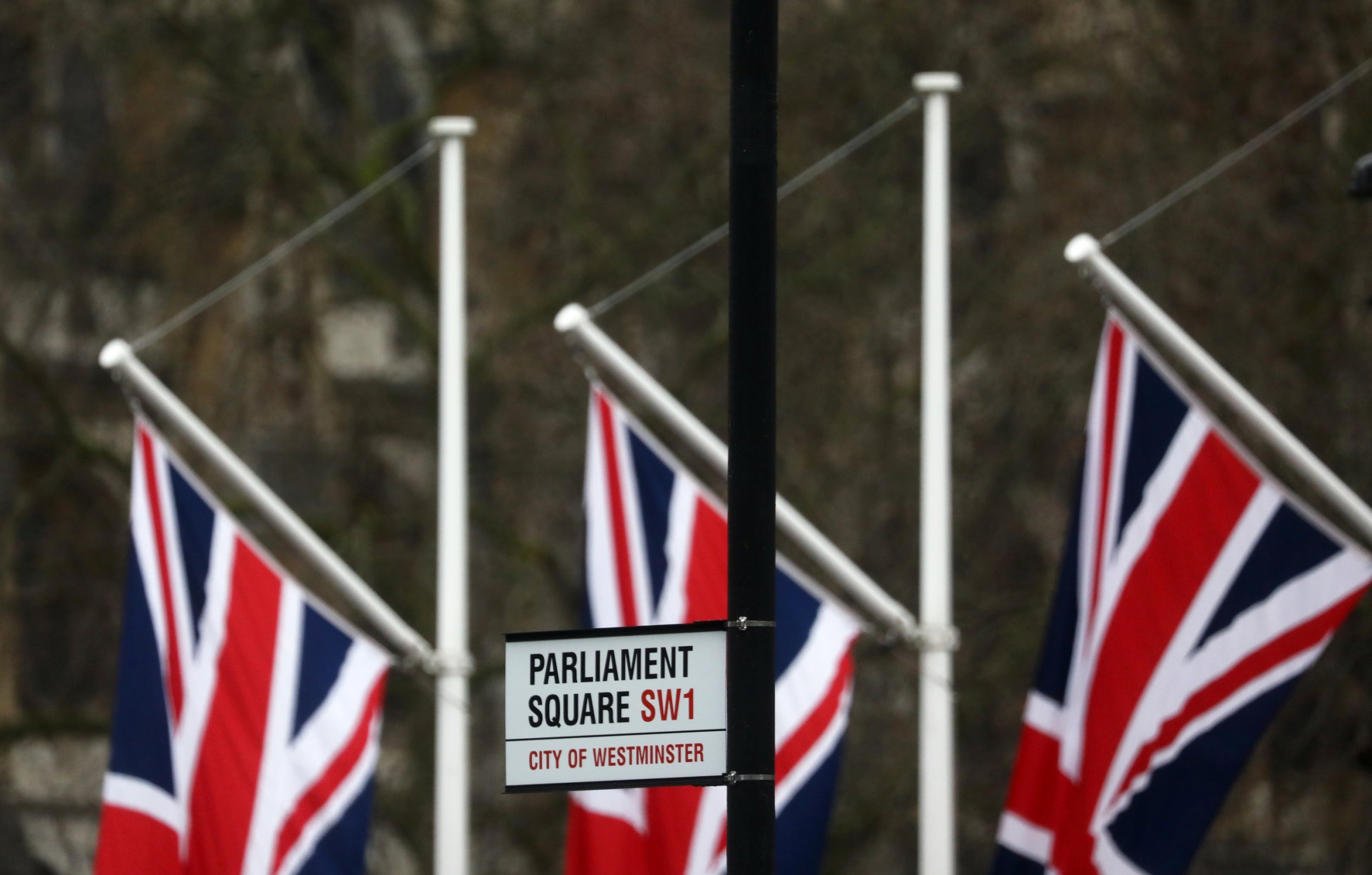
60/66
Britain’s departure from the European Union was set in law on January 29, amid emotional scenes, as the bloc’s parliament voted to ratify the divorce papers. After half a century of membership and three years of tense withdrawal talks, the UK will leave the EU at midnight Brussels time (23.00 GMT) on January 31
Reuters

61/66
A man poses with paintings on Parliament Square
Reuters

62/66
People sporting Union Flags gather in Parliament Square
Getty

63/66
A man walks with a St. George’s flag at Westminster bridge on Brexit day
Reuters

64/66
A British bulldog toy and other souvenirs at a souvenir store
Reuters

65/66
British pro-brexit Members of the European Parliament leave the EU Parliament for the last time
Reuters

66/66
Jonathan Bullock waves the Union Jack as he leaves the European Parliament
EPA

1/66
A message projected onto the White Cliffs of Dover
Sky News/AFP via Getty

2/66
Getty

3/66
Big Ben, shows the hands at eleven o’clock at night
AFP via Getty Images

4/66
Nigel Farage speaks to pro-Brexit supporters
PA

5/66
Pro-Brexit demonstrators celebrate on Parliament Square
REUTERS

6/66
The Union flag is taken down outside the European Parliament in Brussels
PA

7/66
Pro-EU campaigners outside the Scottish Parliament, Edinburgh
PA

8/66
A pro-Brexit supporter jumps on an EU flag in Parliament Square
PA

9/66
EU Council staff removed the Union Jack-British flag from the European Council in Brussels, Belgium
EPA

10/66
A pro-Brexit supporter pours beer onto an EU flag
PA

11/66
Pedestrians pass in front of the Ministry of Defence Building on Whitehall, illuminated by red, white and blue lights in central London
AFP via Getty Images

12/66
A Brexit supporter shouts during a rally in London
AP

13/66
Pro-EU campaigners outside the Scottish Parliament, Edinburgh
PA

14/66
Pro-EU campaigners take part in a ‘Missing EU Already’ rally outside the Scottish Parliament, Edinburgh
PA

15/66
A large pro-EU banner is projected onto Ramsgate cliff in Kent
PA

16/66
Pro-EU supporters light candles in Smith Square in Westminster
PA

17/66
A man waves Union flags from a small car as he drives past Brexit supporters gathering in Parliament Square
AFP via Getty Images

18/66
The five-year old Elisa Saemann, left, and her seven-year old sister Katie hold a placard during a rally by anti-Brexit protesters outside the Scottish parliament in Edinburgh
AP

19/66
Pro Europe supporters gather on Brexit day near the British embassy in Berlin, Germany
EPA

20/66
Anti-Brexit protester hugs a man while holding a placard
REUTERS

21/66
A decorated, old fashioned fire pump in Parliament Square
PA

22/66
Pro Brexit Elvis impersonator performs at Parliament Square
Getty Images

23/66
An anti-Brexiteers stands with his dog in Parliament Square
AFP via Getty Images

24/66
Paddy from Bournemouth wears Union colours as he sits next to an EU flag decorated bag in Parliament Square
AFP via Getty Images

25/66
A pro-EU activist plays a guitar decorated with the EU flag during a protest organised by civil rights group New Europeans outside Europe House, central London
AFP via Getty Images

26/66
People celebrate Britain leaving the EU
REUTERS

27/66
A Pro Brexit supporter has a Union Jack painted onto his face at Parliament Square
Getty Images

28/66
Men hold placards celebrating Britain leaving the EU
REUTERS

29/66
Pro Brexit supporters dance in the street draped with Union Jack flags at Parliament Square
Getty Images

30/66
An anti-Brexit demonstrator spreads his wings during a gathering near Downing Street
AP

31/66
Pro EU supporters display a banner ‘ Here to Stay, Here to Fight, Migrants In, Tories Out’ from Westminster bridge
EPA

32/66
Pro-Brexit supporters burn European Union flags at Parliament Square
Getty

33/66
A man poses for a picture on Parliament Square in a ‘Brexit Day’ t-shirt
Reuters

34/66
People celebrate Britain leaving the EU
Reuters

35/66
AFP via Getty

36/66
A man wears a pro-Brexit t-shirt
Reuters

37/66
Anti-Brexit demonstrators visit Europe House to give flowers to the staff on Brexit day
Reuters

38/66
Pro Brexit supporter wears a novelty Union Jack top hat outside the Houses of Parliament
Getty Images

39/66
Customers Scott Jones and Laura Jones at the Sawmill Bar in South Elmsall, Yorkshire, where a Brexit party is being held throughout the day
PA

40/66
AP

41/66
Getty

42/66
Getty Images

43/66
Pro-EU activists protest
Getty Images

44/66
A pro-Brexit demonstrator burns a European Union flag
AP

45/66
Pro Brexit supporters
Getty Images

46/66
Pro Brexit supporters
Getty Images

47/66
A Brexit supports holds a sign in Parliament Square
AP

48/66
A man carries an EU themed wreath
Reuters

49/66
Ann Widdecombe reacts with other members of the Brexit party as they leave en masse from the European Parliament
PA

50/66
Anti-Brexit demonstrators in Parliament Square
PA

51/66
Pro EU supporters let off flares from Westminster Bridge
Getty

52/66
British MEPs Jonathan Bullock, holding the Union Jack flag and Jake Pugh leave the European Parliament, in Brussels on the Brexit day
AFP via Getty

53/66
Newspapers and other souvenirs at a store, near Parliament Square
Reuters

54/66
Brexit supporters hold signs in Parliament Square
AP

55/66
Pro-EU protesters hold placards in Parliament Square
AFP via Getty

56/66
French newspapers
PA

57/66
Sinn Fein leader Mary Lou McDonald with a Border Communities Against Brexit poster before its unveiling in Carrickcarnon on the Irish border
PA

58/66
National growers organisation British Apples & Pears has renamed a British apple to EOS, the Greek goddess of dawn, to commemorate Brexit day
AP

59/66
Pro-EU protesters hold placards in Parliament Square
AFP via Getty

60/66
Britain’s departure from the European Union was set in law on January 29, amid emotional scenes, as the bloc’s parliament voted to ratify the divorce papers. After half a century of membership and three years of tense withdrawal talks, the UK will leave the EU at midnight Brussels time (23.00 GMT) on January 31
Reuters

61/66
A man poses with paintings on Parliament Square
Reuters

62/66
People sporting Union Flags gather in Parliament Square
Getty

63/66
A man walks with a St. George’s flag at Westminster bridge on Brexit day
Reuters

64/66
A British bulldog toy and other souvenirs at a souvenir store
Reuters

65/66
British pro-brexit Members of the European Parliament leave the EU Parliament for the last time
Reuters

66/66
Jonathan Bullock waves the Union Jack as he leaves the European Parliament
EPA
New, inferior agreements would have to be struck with EU members, to replace membership of Europol, the European Arrest Warrant and the Schengen Information System database of suspects.
The latest news on Brexit, politics and beyond direct to your inbox
However, failing to reach an “adequacy decision” would also alarm companies faced with having to move part of their operations to the EU or risk losing business to rival firms on the Continent.
Mr Brokenshire’s admission comes after Brussels also raised the prospect of the go-ahead not being given in time, saying an assessment should have begun in February.
The process involves assessments by the European Commission and the European Data Protection Board, before approval can be granted by member states and the College of Commissioners.
In February, the European Parliament adopted a resolution stating the UK’s legal framework for data protection “does not currently meet the conditions for adequacy”.
Concerns were raised over the UK’s forwarding of personal data to other countries, the processing of personal data for immigration purposes, and the retention of electronic telecommunications data.
Giving evidence to the Lords EU security and justice sub-committee, Mr Brokenshire also admitted a clash over the EU’s insistence that the UK gives “adherence” to the European Court of Human Rights.
He argued the UK was fully committed to it, but could yet make changes to the Human Rights Act, which gives it legal force in this country.



